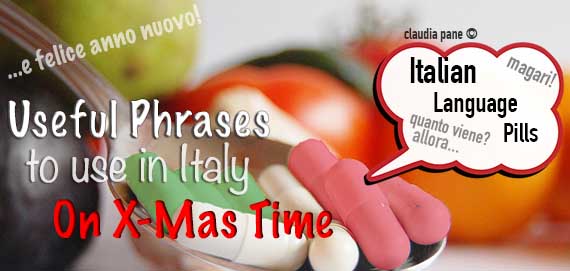Boh is a magic word.
I think it might be symbol of the whole Italian-state-of-mind. Indeed I think by now you are familiar with how much Italians relies on context when they speak – hand gestures, tone of voice, facial expressions.
Three letters, then, can mean many things.
It basically means “I don’t know“. But actually it can be more than that and imply “I have no idea, don’t ask me one more time, how would I know?“. In this case it has in it a sort of laziness because I do not wish the listener to continue. Sometimes, indeed, I may even pretend and just say “boh” as an answer to a question when I want to just end the conversation.
To give you a rough idea, the lenght of the syllable – its sound/pronounciation – varies according what the speaker means:
- Boh! – very quick, higher pitch, it is an exclamation, and it means that “I really do not know, I’m just as surprised as you are.”
- Booooooh – long sound of the “o”, lower tone. This one implies the laziness I was talking about. As in “I’m even too lazy to look for an answer, leave me alone”.
Sometimes it is used in phrases by young people on social media to express how puzzled and/or disappointed you are:
1) “Io boh…” and nothing else, implies that you wish to say something, but then you are too baffled to continue. Let’s say for example that you find out something that surprises you in a negative way, and you are so surprised that you really would not know how to express your disappointment, so you do not even bother to express it in words.

2) Another one is “io boh… ma voi mah”: “mah” is another variety of “boh”: if it is true that both express confusion, the former implies that you are truly baffled, even more than with “boh”. The translation of the phrase is “I … boh… but you… mah”, which expresses a whole concept: it means “okay, I may be wrong, I may be stupid, but you are just as disappointing, and even worse!”. When you say this phrase, you are not being harsh, it is actually a way to use sarcarsm when put in context.

3) One last phrase, still informal of course, is “e poi boh…”, again without continuing the phrase: it means “and then… I really don’t know what happened here, but it did”. The thing that happened might be anything in your life that left you a bit baffled. Italians do not take this phrase seriously, it is only a way to somehow laugh of the situation. You might even say it with a sarcastic smile.

So much for a single syllable! 🙂




